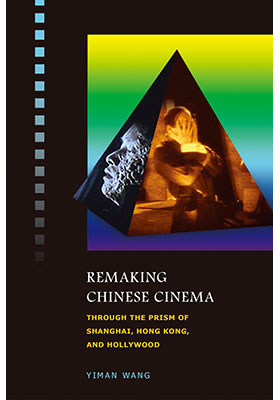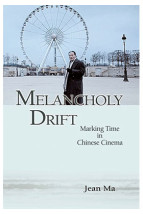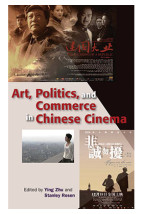Remaking Chinese Cinema
Through the Prism of Shanghai, Hong Kong, and Hollywood
(重新塑造中國電影:透過棱鏡看上海、香港和好萊塢)
ISBN : 978-988-8139-16-3
November 2013
232 pages, 6″ x 9″, 32 b&w illus.
For sale in Australia, Southeast Asia, and East Asia only
- HK$195.00
From melodrama to Cantonese opera, from silents to 3D animated film, Remaking Chinese Cinema traces cross-Pacific film remaking over the last eight decades. Through the refractive prism of Hollywood, Shanghai, and Hong Kong, Yiman Wang revolutionizes our understanding of Chinese cinema as national cinema. Against the diffusion model of national cinema spreading from a central point—Shanghai in the Chinese case—she argues for a multilocal process of co-constitution and reconstitution. In this spirit, Wang analyzes how southern Chinese cinema (huanan dianying) morphed into Hong Kong cinema through transregional and trans-national interactions that also produced a vision of Chinese cinema.
Among the book’s highlights are a rereading of The Goddess—one of the best-known silent Chinese films in the West—from the perspective of its wartime Mandarin-Cantonese remake; the excavation of a hybrid genre (the Western costume Cantonese opera film) inspired by Hollywood’s fantasy films of the 1930s and produced in Hong Kong well into the mid-twentieth century; and a rumination on Hollywood’s remake of Hong Kong’s Infernal Affairs and the wholesale incorporation of “Chinese elements” in Kung Fu Panda 2.
Positing a structural analogy between the utopic vision, the national cinema, and the location-specific collective subject position, the author traces their shared urge to infinitesimally approach, but never fully and finitely reach, a projected goal. This energy precipitates the ongoing processes of cross-Pacific film remaking, which constitute a crucial site for imagining and enacting (without absolving) issues of national and regional border politics. These issues unfold in relation to global formations such as colonialism, Cold War ideology, and postcolonial, postsocialist globalization. As such, Remaking Chinese Cinema contributes to the ongoing debate on (trans-)national cinema from the unique perspective of century-long border-crossing film remaking.
“This study of remaking in Chinese cinema is both one of the most sophisticated and insightful analyses of the remake phenomenon in general and a work that reveals a series of fascinating and hitherto occluded connections and links in Chinese-language film history. Each case study is a revelation for the reader. This rigorous and original piece of scholarship reveals, investigates, and narrates forgotten connections across borders and between major filmmaking cities and in this way makes new contributions to film history. The primary readership for the work will be students and scholars of Chinese cinema, but its contribution to larger debates about transnational cinema and remaking in general should be recognized and it should find a wider readership in cinema studies, as well as in Chinese studies.” —Chris Berry, King’s College London
“Yiman Wang establishes new paradigms for studying Chinese cinema. Tracing how films were adapted and remade across borders from the 1930s to the present, the book demonstrates the strong bonds among film industries in the Pacific rim, and especially among Chinese-speaking countries. Wang contributes to the cutting-edge field of Sinophone studies, which challenges the notion of cinemas defined by the nationstate. Wang brings rare expertise as she straddles China studies and film studies, drawing on theories of national formation and film reception. The book relies on rich archival research in China, Hong Kong, and the U.S., and should be read by all interested in the transnational circulation of words and images.” —Yomi Braester, University of Washington
“The book is well researched, lucidly written, theoretically grounded and ambitious. Its analysis of popular genres, excavation of lesser-known film texts in regional dialects, and attention to the transnational nature of Chinese cinema make it a must-read for those interested in global connections and local consciousness achieved through cinema.” —Ying Qian, The China Journal



